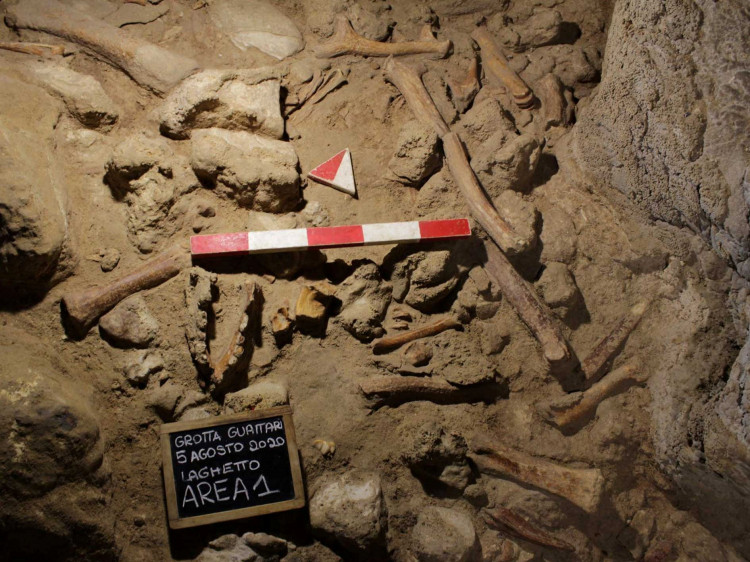Archaeologists in Italy have discovered the fossilized remains of nine Neanderthals in a cave near Rome. They are expected to provide new insights into how the peninsula was populated and under what environmental conditions.
Dario Franceschini, Italy's Culture Minister, called the discovery "an extraordinary discovery that will be the talk of the world."
Skulls, skull fragments, two teeth and other bone fragments are among the fossilized remains. The oldest are believed to be between 100,000 and 90,000 years old while the other eight Neanderthals are estimated to be between 50,000 and 68,000 years old, according to a statement from the Culture Ministry.
"They are all adult individuals, except for one who may have been in his early teens," Francesco Di Mario, head of the Grotta Guattari excavation, said.
The find occurred in Grotta Guattari, prehistoric caves discovered more than 80 years ago, located around 100 meters from the coast of Tyrrhenian Sea in San Felice Circeo, near Latina, in the Lazio region.
The excavations, which began in 2019, included a previously unexplored section of the cave, including a lake first recorded by anthropologist Alberto Carlo Blanc, who is credited with the 1939 discovery of a Neanderthal skull.
The large number of remains, according to anthropologist Mauro Rubini, indicate a substantial population of Neanderthals, "the first human society of which we can speak."
According to archaeologists, the cave, which had been sealed off by an ancient earthquake or landslide, had perfectly preserved the environment of 50,000 years ago.
The ministry's video footage showed bones, craniums, and other body parts discovered at the site.
In addition to the Neanderthal bones, the researchers discovered many fossilized animal fossils, including hyenas, elephants, rhinoceros and giant deer.
The closest ancient ancestors to humans, the Neanderthals, died out about 40,000 years ago. It is unknown what caused their extinction, but theories include a failure to respond to climate change and increased competition from modern humans.





